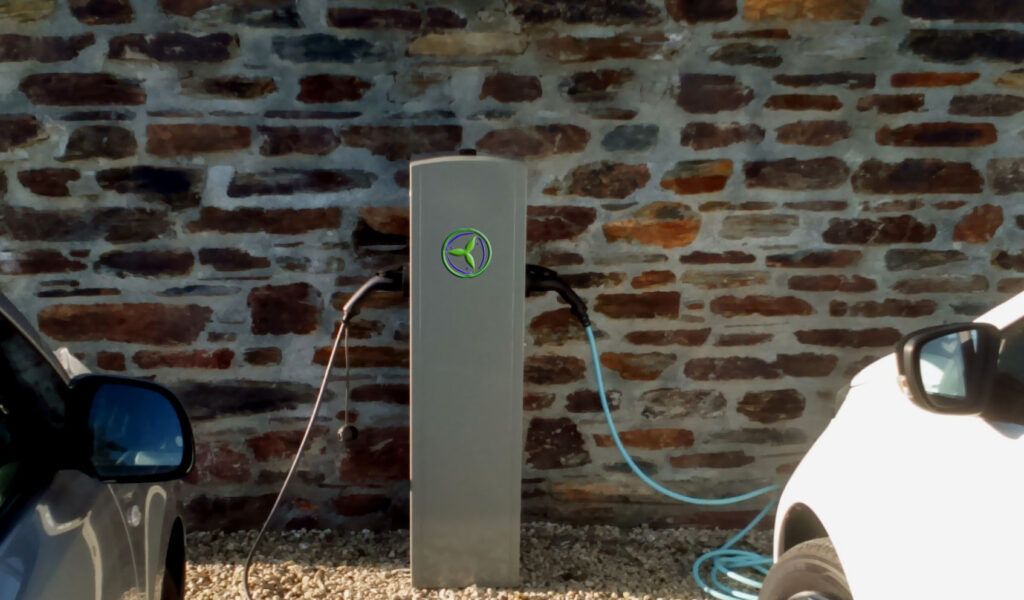Boris Johnson’s speech to the Confederation of British Industries has been in the news for other reasons, but here we’ll concentrate on his announcement about electric vehicle charging stations. According to 10 Downing Street on Monday morning:
PM to announce electric vehicle revolution
Hundreds of thousands of extra charge points in the pipeline with new laws to supercharge the electric vehicle revolution.
New homes and buildings such as supermarkets and workplaces, as well as those undergoing major renovation, will be required to install electric vehicle charge points from next year, under new legislation announced by Prime Minister Boris Johnson today.
England will lead the world to mandate such building regulations, kicking off a decade of delivery in hundreds of thousands of charge points while creating further green jobs across the country.
Up to 145,000 extra charge points will be installed across England each year thanks to these regulations, in the run up to 2030 when the sale of new petrol and diesel cars will end in the UK. This builds on the over 250,000 home and workplace charge points the government has already supported to date.
With the majority of charging happening at home, this will mean people can buy new properties already ready for an electric vehicle future, while ensuring charge points are readily available at new shops and workplaces across the UK – making it as easy as refuelling a petrol or diesel car today.
As well as new homes and non-residential buildings, those undergoing largescale renovations which leaves them with over 10 parking spaces will be required to install electric vehicle charge points.
After consulting with industry, the Government will also be going further to make it easier and simpler for people to go electric, by introducing simpler ways to pay whilst travelling, such as contactless, at all new fast and rapid charge points.
We’ll come on to that consultation shortly, but here’s what Boris was intending to say to the CBI:
Prime Minister Boris Johnson is expected to say:
“This is a pivotal moment – we cannot go on as we are. We have to adapt our economy to the green industrial revolution.
We have to use our massive investment in science and technology and we have to raise our productivity and then we have to get out your way.
We must regulate less or better and take advantage of new freedoms.”
He will add:
“We will require new homes and buildings to have EV charging points – with another 145,000 charging points to be installed thanks to these regulations.
We are investing in new projects to turn wind power into hydrogen and our net zero strategy is expected to trigger about £90 billion of private sector investment, driving the creation of high wage high skilled jobs as part of our mission to unite and level up across the country.”
Here is what Mr. Johnson actually said:
Moving on to this morning, when Her Majesty’s Government published it’s response to the consultation on “Electric vehicle charge points in residential and non-residential buildings” mentioned above. By all means read the entire document, but here are the bits most relevant to us:
In 2021 Government will take forward regulations requiring that:
- New dwellings (including flats) with associated parking within the site boundary to have an electric vehicle charge point. Residential properties with more than 10 parking spaces will also require cable routes in every space without charge points.
- Buildings undergoing material change of use to create new dwellings, to have one charge point for every new dwelling with associated parking within the site boundary of the building.
- Residential buildings undergoing major renovations, with more than 10 parking spaces within the site boundary of the building after the renovation is complete, to have an electric vehicle charge point per dwelling with associated parking and cable routes in all further parking spaces.
There are similar provisions for non residential buildings. Moving on to “smart charging”, we are informed that:
The provision of charge points will act as a catalyst towards consumers making the transition to electric vehicles, supporting the Government’s ambitions to decarbonise the transport sector and reach net zero.
To ensure that the charge points that are installed are future-proofed, we will be seeking to set standards for the charge points required by these regulations, including setting minimum charge powers and plug type.
In 2019, Government also [mandated] that all private charge points sold in the UK are smart and meet minimum device-level requirements for cyber security, data privacy, interoperability and grid stability. A summary of the responses to the consultation was published in May 2020. Government plans to publish a government response and lay legislation later this year…
We intend to bring forward legislation in 2021 which will mandate that all private charge points must be smart and meet minimum device-level requirements. Smart charging of EVs can help consumers save money on their energy bills and reduce the need for costly network reinforcement…
We believe that 7 kW of charging power and Mode 3 charge points will sufficiently future-proof standards for home charging and better enable smart charging benefits, compared to lower powers and other mode types. Likewise, untethered charge points will ensure that consumers are able to charge any type of electric vehicle at the charge point, regardless of plug type. As these are set as minimum standards, developers may provide charge points with higher performing kW and Mode if they choose to do so
The document mentions the term “vehicle-to-grid” in the context of industry responses to the consultation:
Some respondents agreed with the policy intent, but suggested that the policy should be future-proofed by ensuring electrical infrastructure is capable of handling innovations such as vehicle-to-grid…
Respondents raised some concerns that mandating Mode 3 charge points may not be flexible enough to allow for future technologies, such as wireless charging and vehicle-to-grid, to develop…
When asked what other technical considerations should be made, the most common theme in the responses were suggestions that consideration should be given to the impact that these requirements would have on the grid system and that technology such as smart charging and vehicle-to-grid systems should be adopted to mitigate any negative impacts…
Benefits that respondents thought were missed in the Impact Assessment included: electric vehicles being a key tool in combatting climate change and meeting the UK’s net zero target; the potential for electrical network demand management, including vehicle-to-grid; and, the social and health benefits that electric vehicles bring compared to their internal combustion engine counterparts.
However in a somewhat disappointing turn of events, as far as I can tell from a quick read through the Government does not mention bi-directional technology in its responses. Hence our response to the announcement on Twitter:
That elicited further suggestions that we heartily agree with, including “And solar panels on every new building!” and “Charge points and the software that support them is personal choice! Better just to provide the connectivity / wiring needed?”.
Sadly on the latter point the UK Government’s consultation response states that:
The Government has considered the points raised regarding the benefits of requiring only the installation of cable routes and/or cabling. While there are some advantages to these options (namely allowing residents to choose their charge point), requiring charge points will encourage and make it easier for more people to buy and own an electrical vehicle. Particularly those who do not own their home and may struggle to retrofit a charge point. Likewise, developers benefit from economies of scale in the purchasing of charge points and will likely be able to provide charge points at a cost saving, compared to individual consumers. The provision of charge points will act as a catalyst towards consumers making the transition to electric vehicles, supporting the Government’s ambitions to decarbonise the transport sector and reach net zero.
That being the case it seems as though now would be a very good time to point out that this 22 kW 3 phase AC bidirectional untethered type 2 socketed wallbox has been available “off the shelf” for over a year?

It’s no doubt also a good time to once again display an image of the dual port AC V2x enabled untethered electric vehicle charging station that has been located in our car park for over 2 years:

N.B. See also the more recent article on the associated “Electric Vehicles (Smart Charge Points) Regulations 2021“

Pingback: An Open Letter to Trudy Harrison, Scott Mann et al. |Vehicle to Grid UK